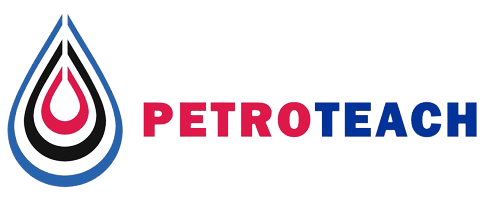DAT 611
AI-Based (Top-Down) Reservoir Simulation and Modelling
Petroleum Data Analytics (PDA) is the application of Artificial Intelligence (AI) and Machine Learning (ML) in the oil and gas industry


Petroleum Data Analytics (PDA) is the application of Artificial Intelligence (AI) and Machine Learning (ML) in the oil and gas industry

| Code | Date | Location | price (€)* |
|---|---|---|---|
| DAT 611 | 25 - 29 Sep 2023 | Stavanger | 4590 |
* Prices are subject to VAT and local terms. Ph.D. students, groups (≥ 3 persons) and early bird registrants (8 weeks in advance) are entitled to a DISCOUNT!
AI-based (Top-Down) Reservoir Simulation and Modeling is a full-field model that only uses facts and reality through actual field measurements and avoids any assumptions, interpretations, simplifications, preconceived notions, and biases. Since AI-based (Top-Down) Reservoir Simulation follows AI-Ethics it avoids using “Hybrid Model” that includes data that is generated through mathematical equations. Unlike many other approaches that are currently used by petroleum service and vendor companies (Artificial General Intelligence), AI-based (Top-Down) Reservoir Simulation incorporates the Science and Engineering Application of Artificial Intelligence.
AI-based (Top-Down) Reservoir Modeling uses “eXplainable AI (XAI)” and generates AI-based Geological Model (Geo-Analytics), Fully Automated History Matching, Blind Validation Forecasting, and avoids using only Space-related reservoir layer characteristics (k*h) for production allocations and uses both space and time to generate “AI-based Production Allocation”. AI-based (Top-Down) Reservoir Simulation and Modeling provides OpEx and CapEx Optimization.
o Brief History of Artificial Intelligence
o Definitions of Artificial Intelligence and Machine Learning
o Science and Engineering Application of Artificial Intelligence
o Modelling Physics using Artificial Intelligence
o Artificial Intelligence versus Traditional Statistics
o Ethics of Artificial Intelligence (AI-Ethics)
o Explainable Artificial Intelligence (XAI)
o Artificial Neural Networks:
o Fuzzy Set Theory:
o Evolutionary Computing:
o Difference between Traditional Numerical Reservoir Simulation and Top-Down Modelling
o Top-Down Modelling:
o Geo-Analytics – AI-based Geological Modelling:
o Development of Spatio-Temporal Database:
o Automated History Matching:
o Top-Down Modeling Production Allocation
o Field Development Planning and Reservoir Management:
o Explanation of the IMagine™ Software Application
o Tutorial of IMagine™ Software Application:
o Descriptive Analytics:
o Predictive Analytics:
o Prescriptive Analytics:

Professor Shahab D. Mohaghegh, a pioneer in the application of Artificial Intelligence, Machine Learning and Data Mining in the Exploration and Production industry, is Professor of Petroleum and Natural Gas Engineering at West Virginia University and the president and CEO of Intelligent Solutions, Inc. (ISI). He holds B.S., M.S., and Ph.D. degrees in petroleum and natural gas engineering. He has authored three books (Shale Analytics– Data Driven Reservoir Modeling– Application of Data- Driven Analytics for the Geological Storage of CO2), more than 170 technical papers and carried out more than 60 projects for independents, NOCs and IOCs. He is a SPE Distinguished Lecturer and has been featured four times as the Distinguished Author in SPE’s Journal of Petroleum Technology (JPT). He is the founder of Petroleum Data-Driven Analytics, SPE’s Technical Section dedicated to AI, machine learning and data mining. He has been honored by the U.S. Secretary of Energy for his technical contribution in the aftermath of the Deepwater Horizon (Macondo) incident in the Gulf of Mexico and was a member of U.S. Secretary of Energy’s Technical Advisory Committee on Unconventional Resources in two administrations (2008-2014). He represented the United States in the International Standard Organization (ISO) on Carbon Capture and Storage (2014-2016).
This course is designed for engineers, geoscientist, and managers. Specifically, those involved with reservoir, completion, and production in operating and service companies. In general, those involved in planning, completion, and operation of hydrocarbon assets are the main target audience.
o Intermediate to Advanced
The objective of this course is to demonstrate and increase the skills of the Participants to apply the power of Artificial Intelligence and the differences it can make for informed decision making when it comes to objectives such as infill location optimization and reservoir production and recovery optimization.
Registration is now OPEN!
* Prices are subject to VAT and local terms. Ph.D. students, groups (≥ 3 persons) and early bird registrants (8 weeks in advance) are entitled to a DISCOUNT!
For more details and registration please send email to: register@petro-teach.com
Would you like a PetroTeach training course delivered at a time or location to suit you?
click for request in house